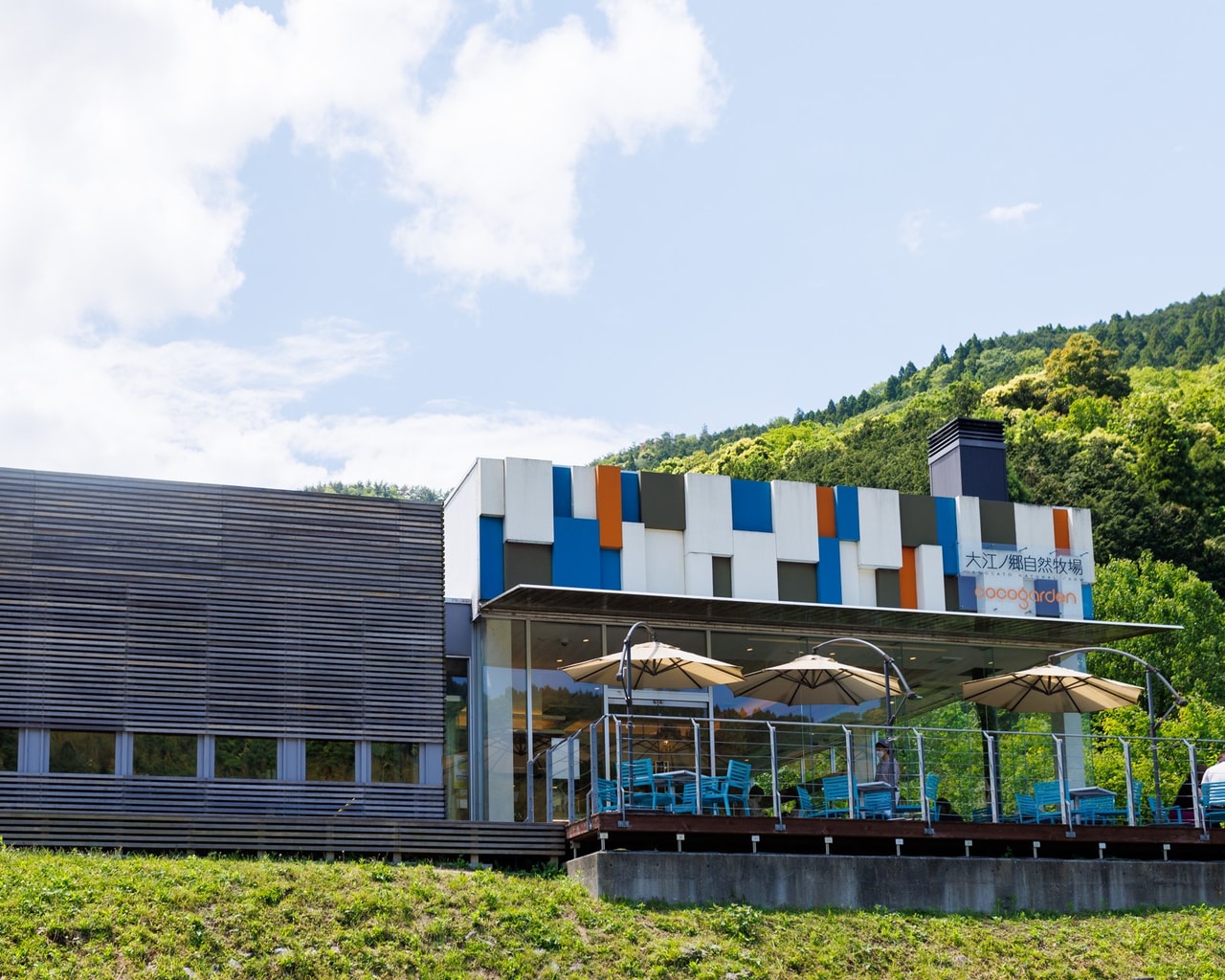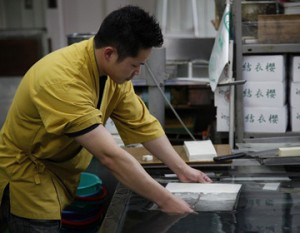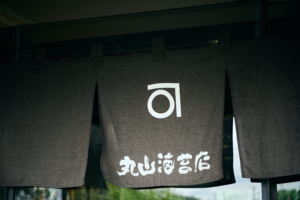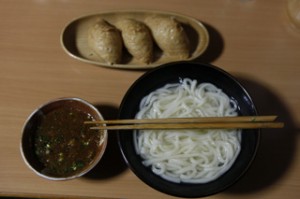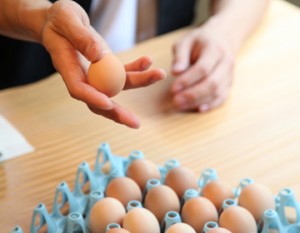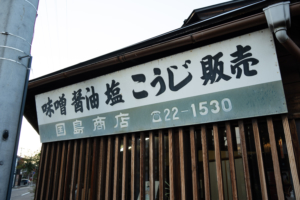Oenosato Nature Farm” raises hens in a flat-fed, stress-free environment. The eggs produced by the hens raised here are named “Tenbiran” (meaning “Heavenly Blessed Delicious Eggs” in Japanese). The price of these eggs is about 120 yen per egg. The price is more than three times higher than the price of a typical chicken egg, which is about 300 yen for a pack of 10 eggs. Today, however, the price of eggs has become less surprising as high-end eggs are now available, but it is no exaggeration to say that Oenosato Nature Farm’s Tenbi Eggs were the pioneers of high-end eggs, as they have been sold at this price since the late 1990s when the farm was established. The history of the company is filled with the founder’s desire to “raise the value of eggs.
An urban building that is hard to believe is a ranch nestled deep in the mountains
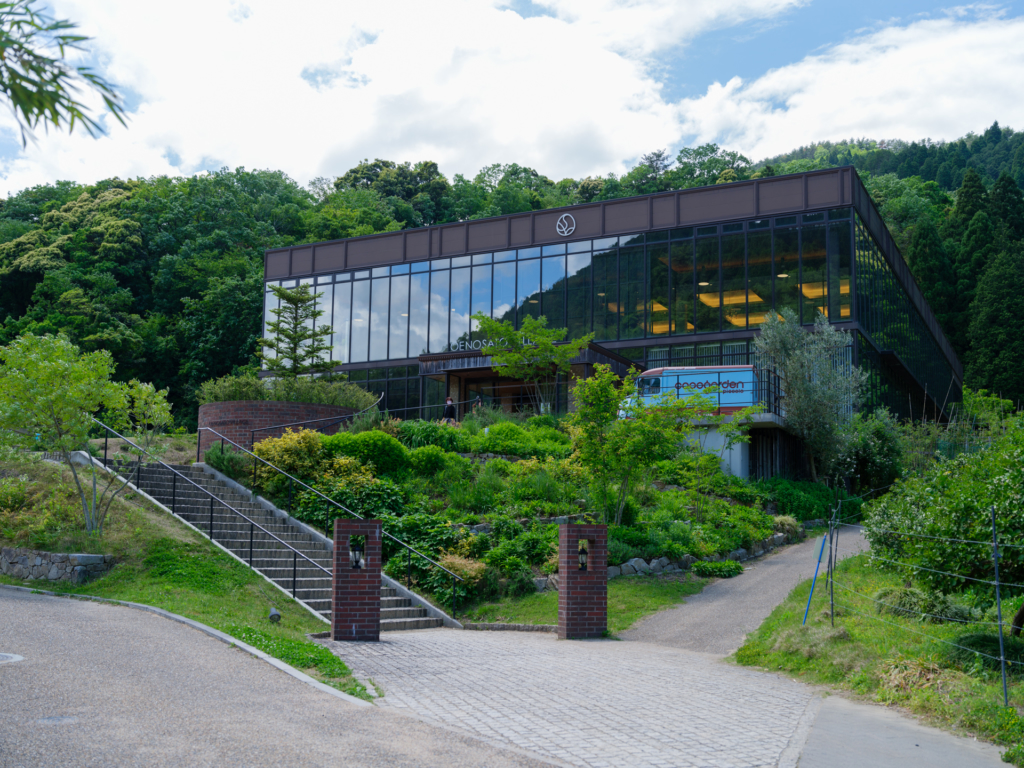
Oenosato Nature Farm is located in Hachigamachi, in the southeastern part of Tottori Prefecture. It is not far from the city, about 30 to 40 minutes by car from Tottori City, but as the name of the facility suggests, it is located in a mountainous area rich in nature, surrounded by greenery all around.
An urban glass-walled building suddenly appears in the midst of such great nature. From the front, at first glance, the sophisticated design does not look like a ranch, and rightly so. While it is a farm where more than 30,000 chickens are raised, it is also one of the most popular facilities in the prefecture, attracting more than 360,000 visitors a year, with a variety of large and small food booths, patisseries, bakeries, cafes, and gift stores.
However, it is not the popularity of the restaurants and gift stores that has made the facility so famous, but the poultry farming that has made it so well known.
The history of Oenosato Nature Farm began with its founder, Mr. Riichiro Obara, who still serves as its representative, and his 2,000 chickens.
From Doubts about Modern Poultry Farming to Independence
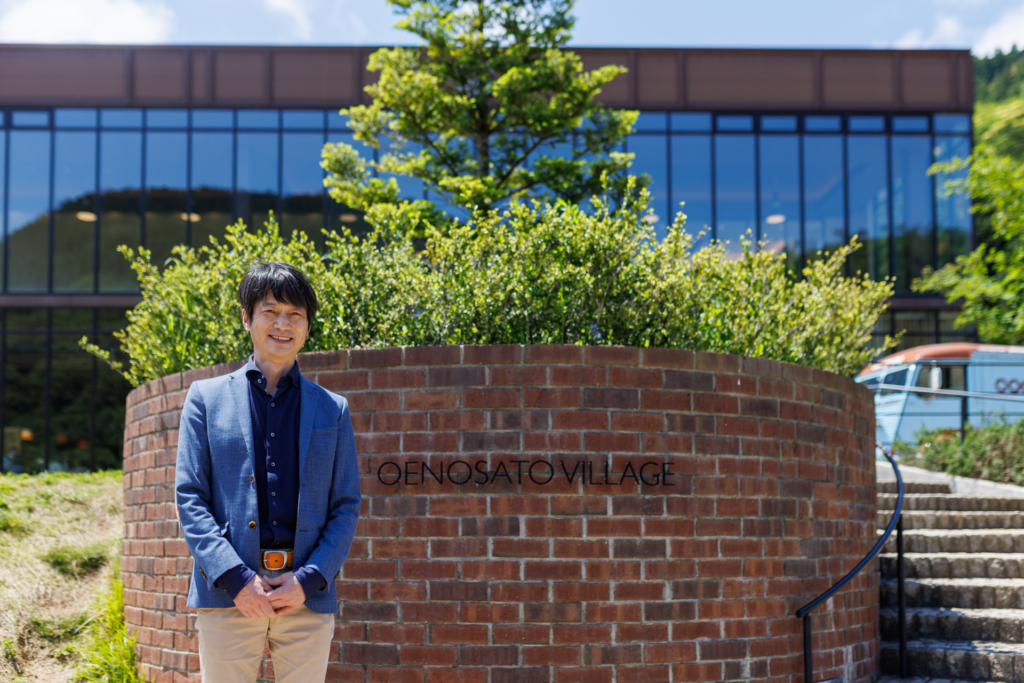
Why did he name his farm “ranch” instead of “poultry farm,” even though he is primarily a chicken farmer and does not engage in any other livestock farming?
The reason is deeply rooted in Mr. Obara’s experience.
Before opening Oenosato Nature Farm, Mr. Obara worked at a large poultry farm. There, chickens were kept crammed into a small space separated by cages. Cage-keeping is the practice at many poultry farms. Although he understood the reality of modern poultry farming, which demands productivity, he could not shake off his doubts and pain about this method of keeping chickens, and he could not bear to continue working as a poultry farmer.
Although he had once left the poultry farming business, Mr. Obara was still attracted to the work of poultry farming. Wanting to try a method of raising chickens in a natural environment, he decided to open a poultry farm in the rich natural environment of Oe, where his grandfather used to live.
At that time, Mr. Obara chose the “flat-feeding” method to realize his ideal chicken raising.
The chickens are free to run around in the spacious, sunlit coop without any partitions, and they are muscular and healthy. The chickens are free to run around freely and are muscular and healthy. They choose their favorite places to bathe in the sand or play in the sun, and spend their time comfortably, thereby minimizing their stress. Nowadays, more and more poultry farms are adopting this method of chicken rearing, which is called “animal welfare,” but at that time, it was still a rarity.
The chickens living here are gentle and very friendly,” says Obara. Even today, about 2,000 chickens are kept in one coop, and they almost never fight. At the poultry farm where he used to work, there were times when chickens in close proximity pecked each other, perhaps due to stress, and their feathers were torn to pieces. Based on this experience, Mr. Obara is now raising chickens while constantly thinking about the kind of environment he would like to be kept in if he were the chicken himself.
The ideal home he has created for his chickens is more like a ranch than a poultry farm. Mr. Obara named his facility “ranch” because he wanted to engage in poultry farming in such an environment.
Fresh eggs that you know the day they were laid.
As mentioned above, the eggs laid by the hens raised at the Oenosato Nature Farm are called “Tenbi Eggs” and have added value because of their commitment. What is noteworthy is the taste and appearance. The “richness” of the eggs is 1.5 times greater than that of ordinary eggs. The whites are elastic and the yolks are plump and healthy looking, with a rich orange color like the sun.
Mr. Obara recommends that first-time buyers try it with rice over egg, so that they can taste the freshness of the flavor.
Incidentally, purchasers often ask, “What is the expiration date of the eggs? When asked this question, Mr. Obara replied, “The expiration date of the eggs is about two years from the date of purchase. Oenosato Nature Farm answers, “For raw eggs, two weeks after birth,” but Mr. Obara tells us that the taste changes over time. Freshly laid eggs have a slightly hard taste. Of course, this can be called “freshness,” but after a few days, the taste becomes softer and “mellower,” he says. The reason for this is that freshly laid eggs contain a lot of carbon dioxide gas, which is released as time goes by.
Mr. Obara, who has been committed to improving the growing environment of his hens and enhancing the value of eggs since the time he opened his business, must be thinking daily about how to maximize the flavor potential of his eggs, rather than simply claiming to be fresh.
However, freshly laid eggs are still delicious, and instead of controlling the timing of their shipment, they believe that it should be up to the buyer to decide whether to enjoy the taste that mellows over time or to taste the freshly laid eggs right away. That is why Oenosato Nature Farm continues to insist on shipping eggs freshly picked every morning on the same day, even though the number of eggs produced has increased.
Because of this commitment, the company has been selling high-end eggs with confidence since the day it opened its doors.
Pancakes with a two-hour wait that made Oenosato famous.
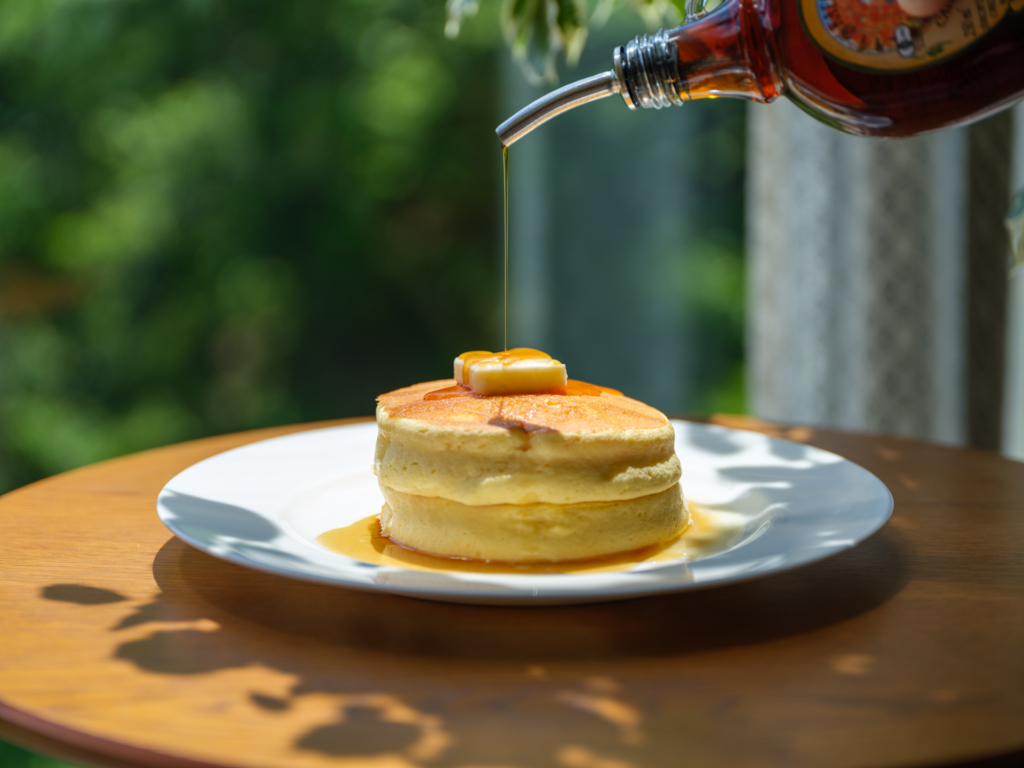
As egg production increased, so did the number of out-of-spec eggs, of which a certain percentage were produced. In an effort to make use of these eggs, the company began selling processed products and offering sweets.
He insisted that the ingredients used in his processed foods and sweets be locally and domestically produced, and above all, he was absolutely confident in the taste of the eggs he produced.
However, being particular about ingredients does not necessarily mean that the sweets and dishes using those ingredients will taste good. What is important is whether they have experience, skills, and know-how in cooking. Oenosato Nature Farm is a poultry farm, and there was no way they could find a staff member with extensive experience in cooking, so the first person they turned to was an egg delivery staff member who loved to eat.
The staff gradually gained experience by visiting confectionery stores for training and hiring specialized instructors.
However, it was not until 14 years had passed since the poultry farm was established that they were able to complete products of a quality that they could sell with confidence and open a sales outlet in the facility.
It took a long time, but that is why we were able to succeed,” says Obara. The reason for this is that over the years, Tenbi Egg has become widely recognized, and at the same time, the number of people who share its value has increased. The sales office is attached to a poultry farm. Although it was not a place where many people came and went as in the city center, it was the fans who knew the value of Amami Eggs who were the first to visit the store when they heard the news of the start of the sweets sales. After many years of work, the products were highly acclaimed and became known throughout the prefecture by word of mouth.
The sweets made with Amami Eggs gradually became one of the representative brands of Oenosato, and today, many people learn about Amami Eggs and the ranch through these sweets.
Among them, “Oenosato Pancakes” made the name of Oenosato Nature Farm famous. The pancakes are made with firm Amami egg meringue, and are characterized by their melt-in-your-mouth texture and rich egg flavor. It has been the cafe’s signature item for many years, and even now, on Saturdays, Sundays, and holidays, customers wait in line for two to three hours to get their pancakes.
It started out as a small pastry store built near a poultry farm in 2008, and gradually expanded as the number of customers grew, and a café space was added. In 2016, a large food facility was opened that also sells bread and sausages and has a restaurant. Behind the expansion of Oenosato Nature Farm from a poultry farm to a popular tourist attraction was Mr. Obara’s long-held dream of “creating a place where people can see, touch, and experience what we have been doing, so that many people will know the charm of this place.
A place where nothing is what it seems.
When he first began planning to turn Oenosato Nature Farm into a tourist attraction, he was afraid that the staff would say, “Isn’t it reckless for a single company to create a reason to visit this place with no tourist resources?” Mr. Ohara was reluctant to confide in his staff, because he was afraid they would say, “Isn’t it reckless for a single company to create a reason to visit this place with no tourist resources? However, when he set this enthusiasm as a goal and communicated it to those around him, he learned that there were a number of staff members who felt the same way. His enthusiasm spread to other staff members, and the entire company became involved.
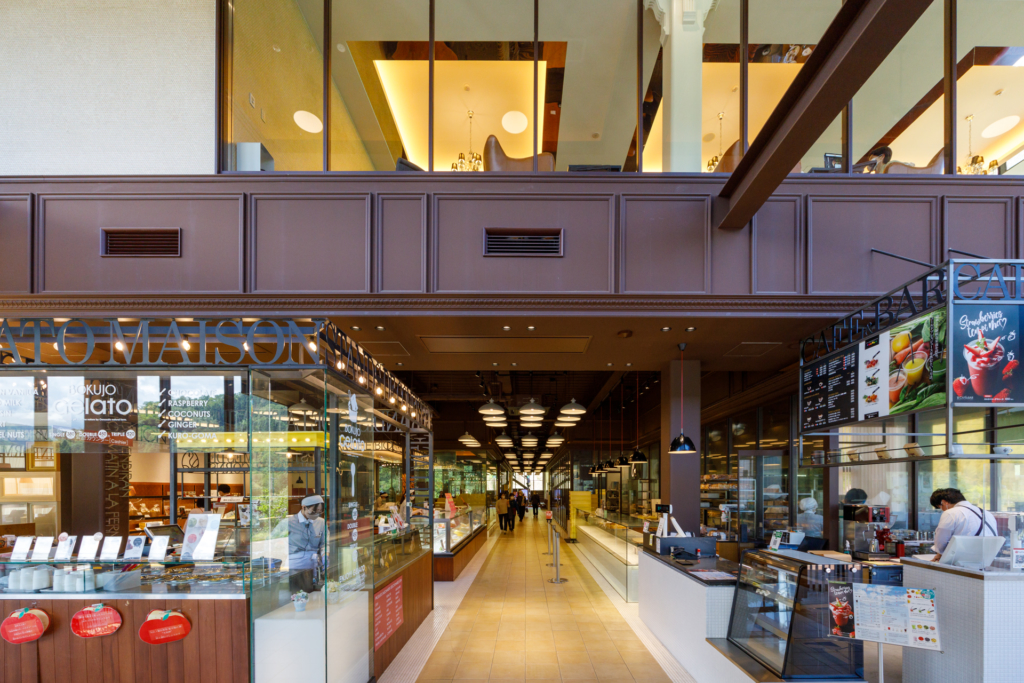
The reason why the sweets store, café, and restaurant were not opened in the city center, where there is a large population flow, but instead in this location was because “This building would not stand out so much if it were in the middle of the city, but its value would be very different if it were here, where there is nothing but nature. We thought, “This is where we can do it. They wanted to convey to the young people of Tottori Prefecture an attraction that is not only found in urban areas.
To convey the charm of Oe
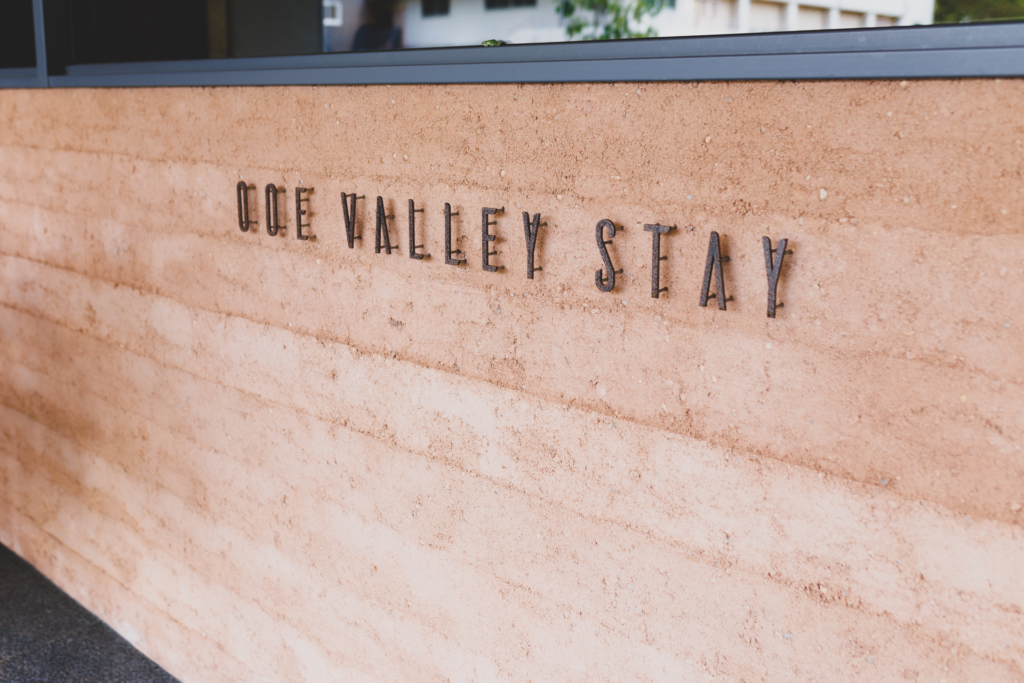
OOE VALLEY STAY” is a new attraction added to Oenosato Nature Farm. It is an accommodation facility that utilizes a closed elementary school in the area. The former elementary school, located within a few minutes’ drive from the ranch, has been transformed into a facility that combines food, experience, and lodging.

Here, visitors can enjoy the beautiful starry sky, the morning air unique to the satoyama surrounded by mountains, and the delicious local sake and regional food culture carefully selected by the Oenosato Nature Farm. The addition of the “lodging” factor to the “food” and “experiences” that have attracted so many people to the facility in the past has made it possible to convey the charm of Oe to an even greater number of people.
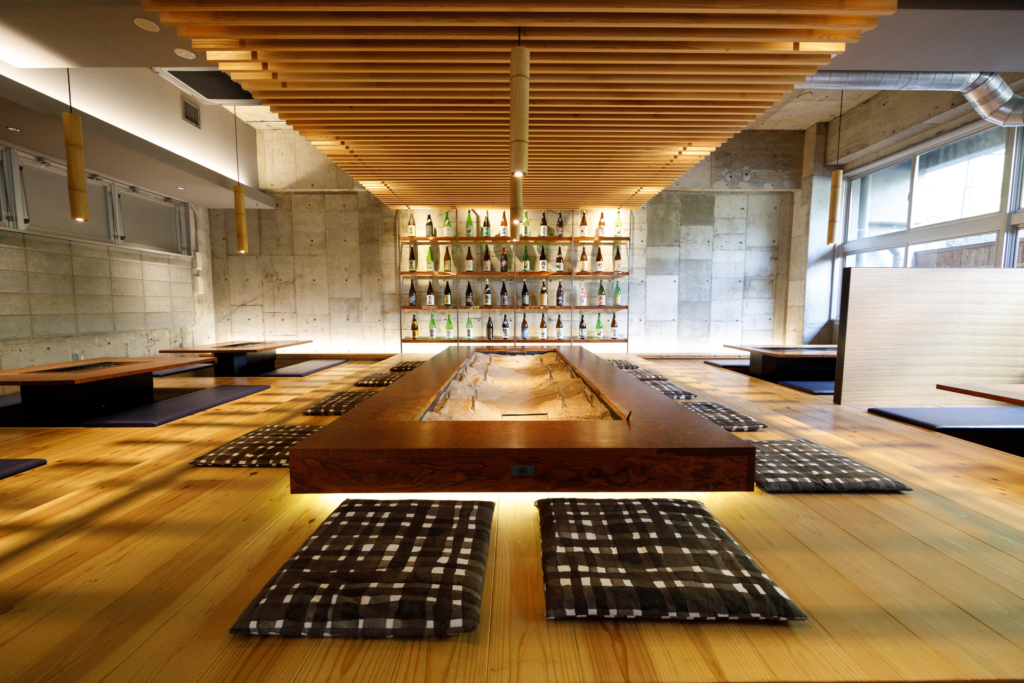
To poultry farming in nature
And they are also updating their poultry farming, which is their starting point, through trial and error.
Take feed, for example. We have always used corn, rice bran, seaweed, and other natural ingredients in our formulations to help build the chickens’ bodies. However, as the next phase, we believe it is necessary to change our current dependence on imports of grains, which are the main ingredient of feed.
First, with the cooperation of domestic producers, we have begun growing corn for animal feed in Hokkaido. Also, locally produced feed rice and bamboo charcoal made from bamboo, which is considered a nuisance in the mountains. These are beginning to be used for animal feed. Although costly, Mr. Obara believes that there is always value in going beyond this. Even if it is difficult to get the whole of Japan involved right away, they must first demonstrate the value themselves.
The Future of Oenosato Nature Farm
His efforts to make poultry farming a part of nature are rooted in his strong passion for Oe, where he started his ranch. Mr. Obara hopes to preserve this region for the future by recycling poultry farming and agriculture, and to convey its charms to more people than ever before.
The expansion of the farm is an opportunity to make people aware of this. The initial goal was 300,000 visitors per year, and that goal was achieved in 2018. Currently, they are aiming for 570,000 visitors per year, which is more than the population of Tottori Prefecture.
When it started, no one could have imagined such prosperity. However, Mr. Obara has achieved this much with his passion for poultry farming and his desire to make Oe more prosperous. His vitality will surely be a great force to change the future of poultry farming and the region.



